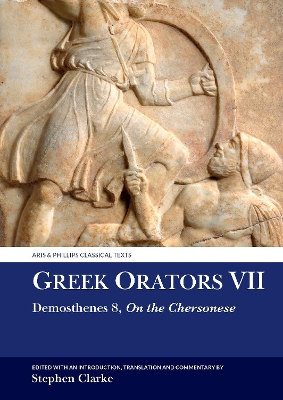Aris & Phillips Classical Texts
1 total work
Demosthenes' oration On the Chersonese is a masterpiece of rhetorical brilliance and contains some of the best examples of his skill as a political orator, coming as one of his final surviving speeches in the corpus. It was delivered to the Athenians in 341 BC, at a time of turbulent events when Athens was coming under increasing pressure resulting from the actions of Philip of Macedon. The Chersonese was a region of great importance for Athens. At the time of the speech, Philip was in the middle of an extensive military and diplomatic campaign in Thrace that would threaten the security of the Athenian grain trade from the Black Sea. The resulting pressure in the Chersonese, however, was seen by Demosthenes as an attempt by Philip to weaken Athens as a prelude to taking the whole of Greece. In this context he argued in the speech that the general Diopeithes, who had been sent out to the Chersonese in 346 with a naval force, be supported in the face of protest from Philip regarding Diopeithes' actions in the wider area. He focuses on Athenian relations with Philip in this crucial northern region and why Philip was a threat to Athenian interests in the area.
This edition with Greek text, translation and commentary contains the first detailed commentary on this speech. The introduction explains the historical background in some detail, as well as examining Demosthenes' deliberative oratory, the structure and style of the speech, and relationship to the speeches that followed, including the famous Third Philippic. The commentary focuses on all political, military, social and religious references presented by Demosthenes, as well as oratorical aspects.
This edition with Greek text, translation and commentary contains the first detailed commentary on this speech. The introduction explains the historical background in some detail, as well as examining Demosthenes' deliberative oratory, the structure and style of the speech, and relationship to the speeches that followed, including the famous Third Philippic. The commentary focuses on all political, military, social and religious references presented by Demosthenes, as well as oratorical aspects.
